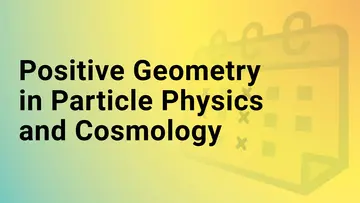Renormalization of gauge theories and gravity
- David Prinz (Max Planck Institute for Mathematics)
Abstract
The renormalization of gauge theories and, eventually, gravity is one of the biggest current challenges in mathematical physics. In my research, I am approaching this topic via the renormalization framework of Connes and Kreimer: In this setup, subdivergences are organized using the coproduct of a Hopf algebra of Feynman graphs and the renormalized Feynman rules are then constructed through an algebraic Birkhoff decomposition in the respective character group. When applied to (generalized) gauge theories, the obstructions for gauge anomalies — the so-called Slavnov—Taylor identities — form a Hopf ideal therein, as was originally shown by van Suijlekom and then refined by myself. In this talk, I first give a short introduction to the Connes—Kreimer renormalization framework and then explain its application to (generalized) gauge theories: Specifically, I will first discuss the case of Quantum Yang—Mills theory and then explain how this setup can be generalized to (effective) Quantum General Relativity. Finally, I will give an outlook how I aim to construct a Feynman graph cohomology that encodes the cancellation identities of the theory. Its compatibility with the renormalization operation then results in a differential-graded renormalization Hopf algebra, which is equivalent to the transversality of the theory. More information thereon can be found in my dissertation and the articles it is based upon, cf.arXiv:2210.17510 [hep-th].
